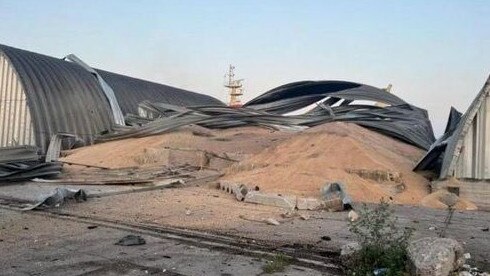Russia attacks Danube River grain ports
Drone attacks on Danube River ports led to a large uptick in international grain prices on Monday, with domestic prices expected to follow.

Russian drone attacks on Danube River ports led to a spike in international grain prices on Monday, with domestic prices expected to follow.
In the early hours of Monday morning Ukrainian time, Russia attacked the ports of Reni and Izmail for the first time since the war began.
The Ukrainian Ministry of Defense reported a grain hangar and cargo storage tanks were destroyed.
Analysts have described the attack as a bigger event than Russia’s strike on the Black Sea port of Odesa last Tuesday, due to its potential effect on the alternative grain export route Ukraine built to replace exports through the embattled Black Sea.
Episode3 agricultural analyst Andrew Whitelaw said the attack was “significant” because Ukraine could have used the Danube to export grain that now can’t travel through the Black Sea.
“Millions of tonnes (of grain) which could have gone through the Danube might not now... ship owners will be very reticent to put vessels in there,” he said.
Ukraine exported 58 million tonnes of grain in the 2022-23 season, half of which was exported through Ukrainian Black Sea ports under the Grain Initiative. 15 million tonnes was exported through Danube ports, and about 14 million tons by railway and trucks, according to the Ukraine Grain Association.
This year, Ukraine is hoping to export about about 45 million tonnes of grain and oilseed crops.
Rabobank agricultural analyst Dennis Voznesenski said the Danube River attacks would slow the volume of grain exports out of Ukraine, but he expected Ukraine to rebuild infrastructure quickly because “there’s not that many other avenues for them to export through”.
russian terrorists continue their war on grain. Last night, they attacked the grain infrastructure on the Danube River with Shaheds. Three drones were shot down by air defense. Unfortunately, as a result of the attack, six people were injured and a grain hangar and cargo storage… pic.twitter.com/TY7S0IOvtq
— Defense of Ukraine (@DefenceU) July 24, 2023
Monday’s attack sent Chicago Board of Trade wheat prices up 9 per cent compared to Friday’s price levels, which had settled after an 8 per cent spike following the attack on the Port of Odesa.
The lift in international prices flowed through to the domestic market last week, with increases of between $10 and $30 per tonne for Australian Premium White wheat depending on location. APW wheat delivered to Melbourne sold for $409/tonne on Monday, up from $400/tonne last week.
#Wheat is up 9% since Friday's lows on the Danube attacks...trading at the limit-up.
— Andrey Sizov (@sizov_andre) July 24, 2023
I wished wheat shorts luck just recently, as I recall. Wonder how much has been covered today and how much left...will we see the funds going long, similar to March 2022?#oatt#corn… pic.twitter.com/C5wDCxZum1
Grain Producers Australia southern region director Andrew Weidemann said he expected international price fluctuations to add to domestic price pressure and drive basis prices up.
Dry conditions have led to struggling crops and unplanted paddocks in northern New South Wales and Queensland. Growers in those areas expect all their grain to be sold domestically, while Queensland feedlots will look to southern NSW and Victoria to supply feed, adding pressure to the domestic market, he said.
“We’ve got internal pressure, certainly in the East Coast, that’s going to push basis prices up. And of course, you feed into that what’s happening globally: it’s just so much uncertainty after the last 24 hours.”





